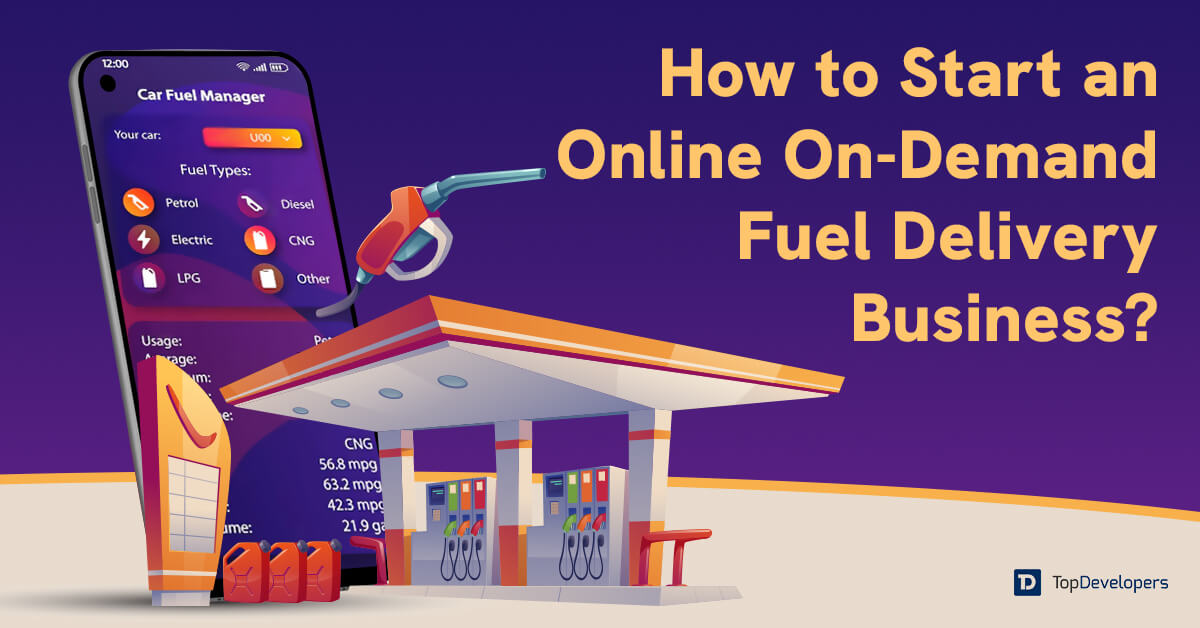
The new startup enterprise ecosystem has been demonstrating promising growth for the past couple of years despite the economy-crushing pandemic. The good news is that the new-age entrepreneurs have shown a dynamic digital mindset to get them a competitive edge in the market; thus, they venture into breaking the trend to utilize big data for startup enterprises’ sustainable growth. And, top big data analytics companies help them achieve this goal.
The benefits of big data for startup enterprises are many because entrepreneurs prefer data analysis to hypothesize or else, they would be harried by unforeseen hassles. In a way, the new businesses today challenge the traditional business models of fund-raising, deployment, and operations; instead, they toil in analyzing neatly arranged data to carry out sensible decisions.
Table of Contents
- What is the importance of big data for businesses?
- How does big data benefit small businesses?
- The impact of big data on startup enterprises
- Important benefits of big data to startup enterprises
- How can small businesses get started with big data?
- Augment Big Data with Business Intelligence (BI)
- Are you up for Big Data?
What is the importance of big data for businesses?
Big data plays an essential role in uplifting businesses to streamline their operations and increase profits. Some of the noteworthy benefits you get include:
Real-time insights: new data feeds your systems automatically because learned algorithms help you process it all instantly. This delivers real-time insights and thus you can make faster decisions by boosting agility.
Save costs and enhance efficiency: inefficient processes will cost your business time and money. Big data can pinpoint there and, therefore, enable cost-cutting and process optimization.
Better QC: while traditional quality control has limitations, big data goes beyond the boundaries and tracks production. It can pinpoint quality issues and thus ensures consistent product excellence.
Improved marketing campaigns: big data can analyze your customer’s purchase and return and based on this carry out the marketing drives to send personalized emails offering better deals.
Enhanced customer experience: it is possible to optimize marketing, products, and processes to improve customer experience holistically. Happy customers are your loyal advocates that ultimately drive sales/growth.
Competitive edge: big data means faster and more accurate market and customer insights. You get speed to market, efficient allocation of resources, and higher profits while staying competitive.
How does big data benefit small businesses?
Contrary to popular belief, small businesses utilize big data to drive their growth and ensure profit-making. Here are some of the notable benefits:
Reduces overall costs: small businesses can reduce overhead costs by identifying inefficiencies in the supply chain, production, and marketing through big data analysis.
Increase sales/revenue: big data’s customer segmentation and analysis can help small businesses target marketing campaigns with the optimization of products/services.
Improves pricing decisions: small businesses need to focus on pricing initially. Big data can provide useful market trends, and competitors’ pricing to build sure-shot strategies.
Identify weaknesses: big data analytics tools can analyze inputs from various departments and pinpoint bottlenecks to identify underperforming areas. This helps small businesses overcome hassles.
Design new products/services: valuable insight into customer choices, competitor offerings, and market trends can help small businesses design new products that have a high chance of succeeding.
Reduced TTM: with big data tools in place, small businesses can accelerate time to market for any product or service. Thanks to data-driven insights and optimization of product design with streamlined production.
Prevent fraud: for small businesses, prevention of fraudulent activities is essential. AI-enabled big data tools can detect suspicious patterns and trigger alerts. This helps small enterprises prevent financial loss and brand damage.
The impact of big data on startup enterprises
Big data has become a trailblazer technology for startup enterprises as it has revolutionized the way they handle the ever-growing business landscape. With the influence of big data on ERP systems and advanced analytics through machine learning models, startup enterprises are able to harness enormous troves of data to unveil insightful information. With this, they can optimize operations and make data-driven decisions with accuracy and pace.
If we encapsulate everything about big data driving startups today:
- Startups have incorporated ERP systems and big data into their core strategies
- Startup enterprises forecast market trends using predictive analytics
- Sentiment analysis helps startup entrepreneurs to gauge customer sentiments
- Startups that thrive to grow can identify untapped chances through data-driven intelligence
- The impact of big data technologies on ERP systems enhances customer experience and streamlines business workflow
Important benefits of big data to startup enterprises
Big data is a goldmine for startup enterprises. Businesses can unveil hidden insights from customer behavior, operational processes, and market dynamics. Startups, when equipped with these valuable insights, can fine-tune their services or products to target specific users or customers by allocating optimized resources.
The impact of big data technologies on ERP systems is a boon to startups as it can transform raw data into actionable intelligence so that smarter business decisions are made.
Here are some of the straight benefits of big data to start-up enterprises –
Study your industry
Big data analysis enabled in ERP can help you understand the industry landscape. As you integrate big data analytics with ERP systems, your startup gains a deeper insight into the trends and dynamics of your industry.
ERP is immensely helpful in –
- External market data analysis
- Insights on customer preferences
- Competitor activities and actions
- Economic indicators
- Reveal hidden patterns
- Uncover hidden opportunities
With a smart connection between ERP systems and big data, startups identify potential market segments, upgrade product/service offers, and optimize the allocation of resources to save money and time.
Study your peers
ERP systems with big data work as a magic wand for enterprises. You can benchmark and perform competitive analysis through the intelligence capabilities of various automated tools.
Startups and enterprises can identify areas to improve and innovate by harnessing internal performance metrics from the ERP system that also offers industry standards and data of competitors with actionable analysis:
- Identify competitive strengths and weaknesses
- Benchmark key performance indicators
- Inform strategic decisions driven by logic
- Predict competitor actions
Study your clients or customers
You can blend Enterprise Resource Planning (ERP) data with external customer information from myriad sources such as website analysis and social media to create a comprehensive profile of targeted users or customers. Startups and enterprises of all kinds can use this enriched dataset to classify customers based on demographics, behavior, and choices.
You can also gain knowledge about customer journeys and purchase patterns to customize marketing strategies. Indeed, with all such inputs, you can personalize your customer experience and improve retention ratio through specific recommendations of content and services:
- Segment customer base for better insights
- Predict customer behavior and patterns
- Personalize customer experience
- Increase customer lifetime values
How can small businesses get started with big data?
Small businesses can easily start with big data. They need simple steps to follow and witness the success:
- Decide on a big data strategy
- Identify big data sources
- Make a questionnaire about vendors and product lines
- Build customized solutions to store, manage, and access big data
- Analyze data from myriad sources
- Consider third-party analytical tools
- Present the gathered data with foolproof analytics
- Use data-driven insights: make strategic decisions
Augment Big Data with Business Intelligence (BI)
Enterprises can augment big data by blending it with the capabilities of business intelligence. With BI-enabled ERP systems and big data, they can get deeper insights into their business operations and processes. BI tools have the ability to analyze and visualize large datasets which assist decision makers to take cognizance of logic and data metrics.
Business intelligence tools identify trends and patterns in correlation with the data that are difficult with normal audits. Businesses optimize their growth strategies and improve efficiency by combining enormous amounts of data (from big data sources) and analytics with BI.
This is how big data and BI make a winning combination:
- Get deeper customer insights and personalize the experience to shoot increase customer satisfaction
- Optimize processes, recognize bottlenecks, and enhance overall performance
- Churn huge datasets and transform them into actionable insights in line with your business goals
- Discover new opportunities, witness business growth, and ensure sales
- Forecast future trends and customer behavior to stay ahead of peers
Are you up for Big Data?
The three pillars namely industry, competitors, and clients are the foundation of your startup enterprise. Study big data analytics trends. Plan your success on the data-driven strategies because it would offer you a foolproof roadmap and set you worry-free from the biggest question that bothers young entrepreneurs – why do most startup enterprises fail and go into perpetual darkness?
Rebecca Harrison combines her love for emerging technologies with her ability to explain them in clear, concise terms. With expertise in blockchain, IoT, cloud computing, big data, and cryptocurrency, Rebecca’s articles are essential reads for tech-savvy audiences. She has worked closely with tech startups and established companies to explore the potential of these transformative technologies.


